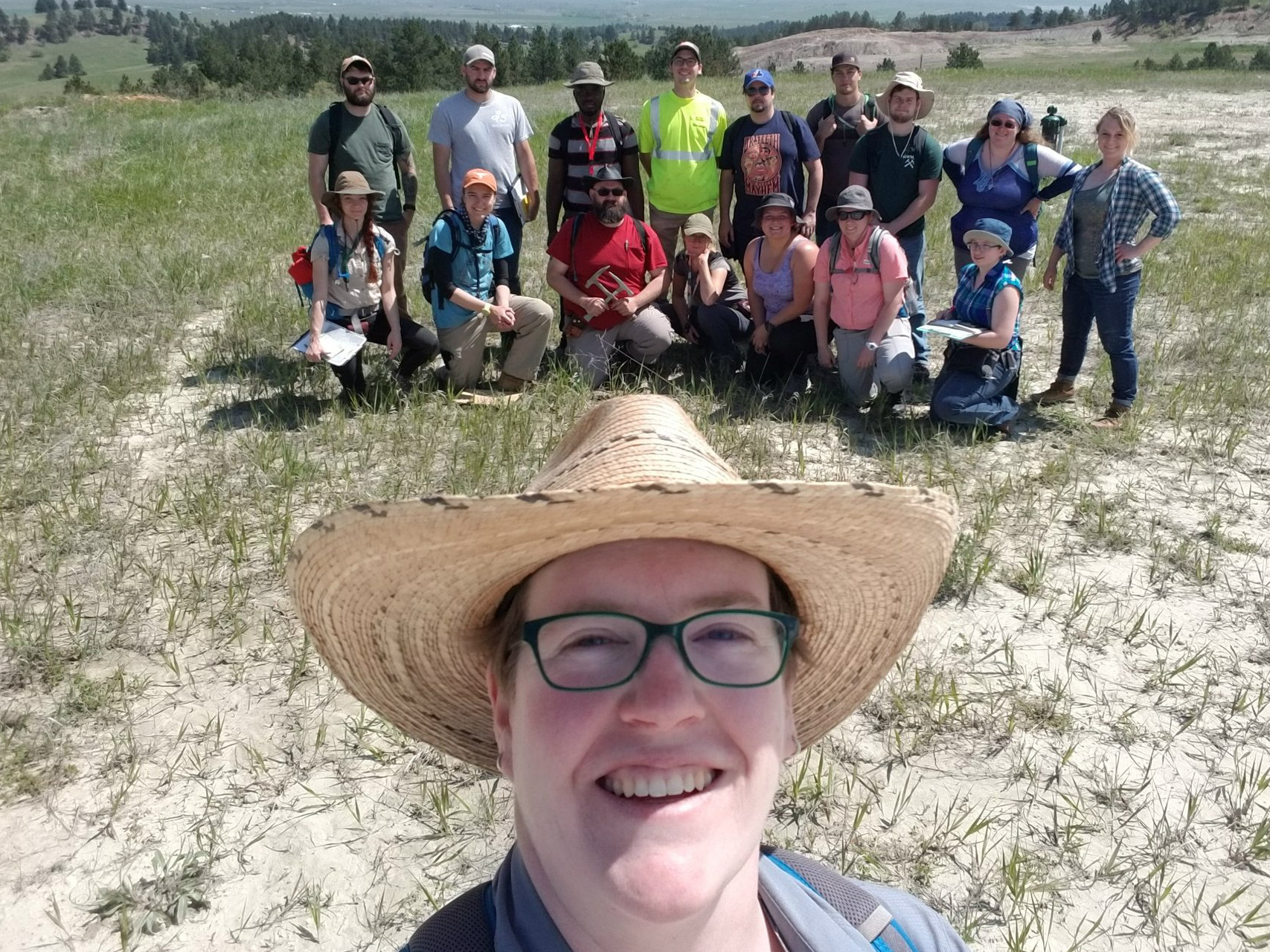Summer can be a busy time for university faculty members, especially field scientists. They often spend weeks getting up close and personal with their chosen research subjects.
As an assistant professor in the UMKC Department of Geosciences, Alison Graettinger is a big proponent of taking students into the field to get this firsthand experience. Last summer, she took several students to study volcanic eruption simulations in Buffalo, New York.
Volcanoes can be difficult and often dangerous test subjects. The simulation workshop was an exciting opportunity for volcanologists to get together and study rapid-fire eruptions in a safe environment for the first time. A recent article by NPR documented the exciting work that took place at this workshop. Accompanying Graettinger were undergraduate students Julia Boyd and Sierra McCollum as well as graduate student Kadie Bennis.
So what do students get to do in the field and why is it important for students to have these experiences?
At the simulation workshop, both Boyd and McCollum performed meaningful analysis. Boyd measured the shape of the craters created by the explosions because it can be used to better understand explosion histories. McCollum participated in an experiment with re-melted lava to research the kinds of particles formed during eruptions.
“Field experiences can shape a student’s future career. Exposing students to different, world class scientists all conducting different research allows students to see just how open their options are. It blows their mind how much is out there.”
Upcoming field experiments are allowing students Alex Bearden and Joseph Nolan to build off previous student work. Bearden and Nolan have plans to travel to Diamond Craters in Oregon to conduct a drone study of crater sizes. Their work will directly benefit from the measurement techniques Boyd analyzed at the simulation workshop.
Last year, another student, Emma Reynolds, traveled to Idaho to study particles ejected in a 4-million-year-old explosion. Reynolds is another student taking part in field research with Graettinger this summer.
At field camp, Graettinger gives students a broad introduction to geology, allowing them to experience many different facets of geological research. Adding to the student experience is learning how immersive field research is and how different that is from what students experience in a classroom. Graettinger said a typical day out in the field includes a full day of hands-on work, which then becomes the main topic of discussion over dinner. The ever-present focus on research allows more time for questions and provides an environment of constant discovery and learning.
“Field experiences can shape a student’s future career,” Graettinger said. “Exposing students to different, world class scientists all conducting different research allows students to see just how open their options are. It blows their mind how much is out there.”
One of Graettinger’s most valuable pieces of advice is to sample everything. She thinks it is important that students get the opportunity to experience new things and meet people that they wouldn’t otherwise meet in their classrooms, noting that these encounters can ultimately change their lives.

